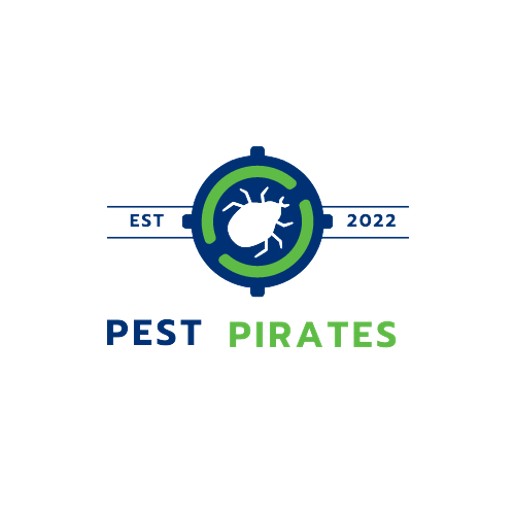
Effective Termite Treatments
When you notice signs of termite activity in your home, acting swiftly can save you from potential damage and costly repairs. There are several treatment options available for combating these pests, ranging from natural remedies to professional services. Here, we will explore both avenues, helping you make an informed decision about the long-term termite management strategies best suited for your home.
Natural Remedies Overview
For those looking to tackle termite infestations naturally, there are a few methods that can be effective when applied correctly. One natural insecticide is boric acid, which acts as a wood preservative and stops termites from extracting nutrients, leading to their demise. It can be applied directly to affected areas or diluted with water for a broader application (Agro Pest Pros).
Another eco-friendly option involves the use of nematodes, microscopic roundworms that combat termites by releasing lethal bacteria or parasitizing the host. Safe for wood, humans, and pets, nematodes can be sprayed onto the infested area and work to effectively control the termite population. They naturally die off after completing their task, making them a non-toxic and temporary presence in your environment.
While these natural methods can be part of your termite control efforts, they may not always provide the comprehensive protection needed for larger infestations. For additional natural termite control options, explore get rid of termites naturally and homemade termite killer recipes.
Professional Pest Control Services
Despite the availability of natural remedies, the most effective approach to ensure long-term termite management is to enlist the services of a professional pest control company. These experts bring knowledge, experience, and access to advanced treatment methods that are often necessary to fully eradicate a termite colony, particularly in cases where there is potential for significant structural damage (Agro Pest Pros).
Professional services typically include an initial inspection to identify the type of termites and the extent of the infestation. Following the assessment, pest control technicians will recommend a tailored treatment plan, which may involve liquid termiticides, baiting systems, or fumigation – each method offering varying degrees of effectiveness for different situations.
Moreover, professional services can help homeowners maintain a termite-free home through regular monitoring and maintenance, ensuring that any new activity is addressed promptly. For those concerned about the costs, researching average termite treatment costs and comparing DIY vs professional termite treatment can provide a clearer picture of the investment involved.
Ultimately, your choice between natural remedies and professional services will depend on the severity of the infestation, your personal preferences, and your commitment to maintaining a safe and healthy living environment. To find a reliable termite control company and learn more about professional treatments, visit our comprehensive guide on the topic.
Long-Term Termite Management
Protecting your home from termites requires a strategic approach that includes various treatment methods. Long-term termite management involves not just eliminating the current infestation but also preventing future invasions. Here are some effective strategies you can consider for keeping your home termite-free over the years.
Liquid Termiticides
Liquid termiticides are a popular choice for termite prevention. These substances are applied under or around your home’s foundation, creating a treated zone that termites cannot cross. According to the Mississippi State University Extension Service, when applied correctly, liquid termiticides can offer residual control for 8 to 12 years or longer. This makes them a highly effective long-term termite management solution, particularly in areas like Mississippi and the Southeast where termites are prevalent.
| Termiticide Type | Effective Duration |
|---|---|
| Liquid Termiticides | 8 to 12 years or longer |
For long-lasting protection, consider liquid termiticides that are specifically designed for long-term defense against these pests.
Termite Baiting Stations
Termite baiting stations are another cornerstone of long-term termite management. These in-ground stations, when installed and maintained properly, can lead to the complete elimination of termite colonies. They work by attracting foraging termites, which then carry the poison back to their colony, inadvertently causing the destruction of their entire population. This method is particularly effective for ongoing termite management and is recommended by experts like the Mississippi State University Extension Service as a valuable tool for building protection.
For more information on different types of baiting systems and their installation, visit our page on best termite baits.
Fumigation
In cases where termites have spread to multiple locations within a building, such as with drywood termites, fumigation may be necessary. This method is more costly and specialized but can be essential for eliminating widespread infestations. Tent fumigation is also effective for treating structures like boats that are infested with Formosan termites. Although it’s a significant investment, fumigation is a potent solution for long-term termite management in specific scenarios, as advised by the Mississippi State University Extension Service.
Learn about the termite fumigation process on our website.
Eco-Friendly Approaches
For those looking for environmentally friendly termite management options, there are several methods available. Heat treatment is a common technique where heat is used to drive termites out and sterilize their eggs, ensuring they do not re-establish the infestation. This approach is highlighted by Mass Bay Wildlife for its effectiveness and non-toxic nature.
Additionally, termite baits are considered eco-friendly and can permanently destroy a colony by having the termites carry the poison back to their nest. This method is not only effective but also minimizes the environmental impact compared to traditional chemical treatments.
For more eco-friendly termite solutions, check out our guide on organic termite treatment options.
Implementing these long-term termite management strategies can help ensure that your home remains secure against these destructive pests. Regular inspections and maintenance of these treatments are essential to their success, so be sure to stay vigilant and proactive in your termite control efforts. For more tips on how to maintain a termite-free home, visit our resource section.




